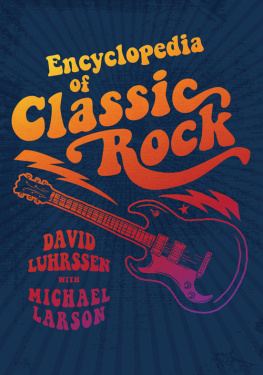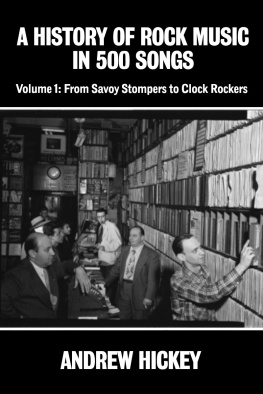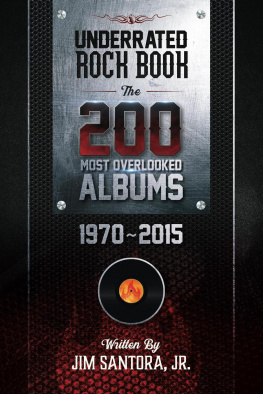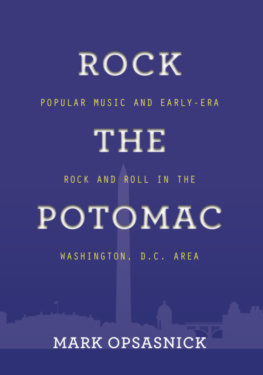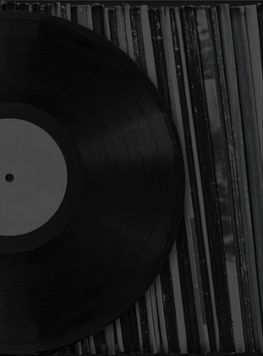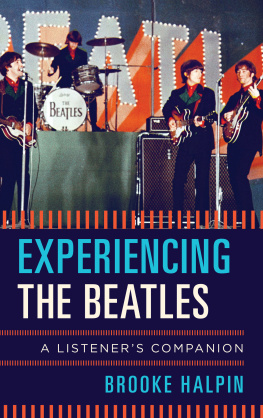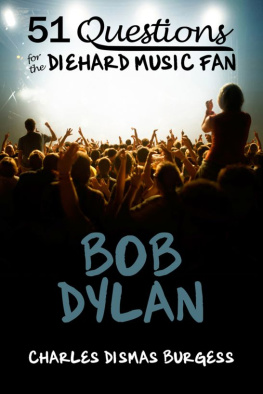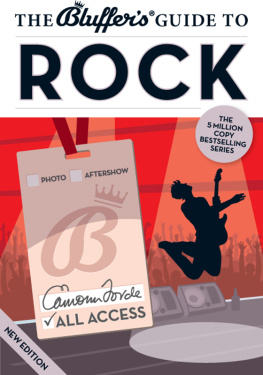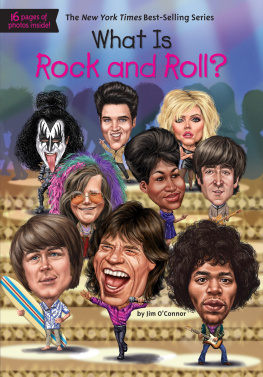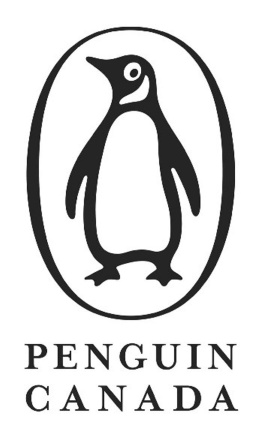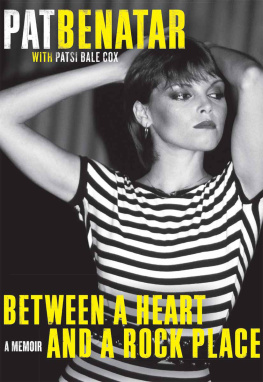Thank you for downloading this Scribner eBook.
Join our mailing list and get updates on new releases, deals, bonus content and other great books from Scribner and Simon & Schuster.
This book is dedicated to my amazing mother, Nancy Helena Pinfield, and my late, great father, George William Pinfield, for their undying support throughout my life
And special thanks to my cowriter, Mitchell Cohen; Laura Nolan; Danny Goldberg; and John Glynn for making this book a reality

Paul McCartney and me
M y relationship with Paul McCartneys voice is longer than with anyone elses except the people in my immediate family. Thats a simple fact. One of my earliest memories is from when I was three years old, sitting on the floor with a record player. Id say, Beatles! Beatles! Give me Beatles! and my brother and sister would put on the Capitol 45 of A Hard Days Night and then the other side, I Should Have Known Better, and I would rock back and forth to the music. Like every kid, I suppose, I thought that they were singing to me personally, and the sound took hold of me. Thats how all this got started, and if my reading and motor skills had been more developed, it would have been my entry into the life of a DJ. As it was, I needed my family to be my audio engineers.
Not long ago, I had the chance to sit down for an extended interview with Sir Paul and ask him the questions Id stored up for decades. I wanted to know everything: the real story behind the Beatles Yesterday and Today Butcher cover, what it was like when a knife was held to his throat in Nigeria when Wings were recording Band on the Run , how Drive My Car was written. I had to hear from him what it was like to play Back in the U.S.S.R. in Red Square, what the lyrics of Jet meant, and the events that led up to his writing one of the most rocking James Bond themes ever, Live and Let Die. He told me how New, the title song from his current album, the one we were doing the session to promote, was written on his dads piano, which was purchased at the music store owned by Brian Epsteins father. I had what amounted to a lifetime of questions, and a limited window to ask them all. Even I cant talk that fast.
At the end of our conversation, Paul said that if he didnt have anniversary plans with his wife, he and I could head down to a pub and continue to talk. Moments like that still seem surreal to me. Lets face it, without the Beatles, who basically invented rock culture, I probably never would have thought about making a spot for myself in the music world. I remember as a kid listening to Rubber Soul in my basement and thinking how brilliant, creative, fertile, and nonsanctioned it sounded, how empowering it was. The Beatles changed the world because they made kids like me feel as though they could do anything.
So you can imagine what it means to be face to face with McCartney, and to not only tell him what he meant to me personally but to be the surrogate for all those fans as impassioned as I am. My job is to ask the questions that those other fans would ask if they had the chance, and I take my job seriously.
No matter how many encounters Ive had like that over the past thirty-plus yearsit has to be into the thousands at this pointI always confront a duality. Im extracting the inside stories on behalf of the audience that isnt in the room, but Im also approaching the encounter as a fan who cant quite believe hes having the experience. When its someone like Sir Paul, or the Rolling Stones or Jimmy Page and Robert Plant, Im with musicians who existed on another plane entirely for me; they were unreachable, unknowable figures from a place distant and remote, sending me messages through their songs that I spent hours, days, trying to decipher. They were voices on vinyl when I was at my most impressionable.
And there are other musicians, like Elvis Costello and Paul Weller, closer to my generation, but no less figures I admired from afar. Its jarring at first when our off-mic discussions become intimate. When I was a teenager, I was just one of the crowdwatching Elvis Costello and the Attractions in the Princeton gym in April 1979, or the Jam at the Palladium in New York City that same eventful month. How could I ever have conceived of a scenario where Elvis and I would be sharing thoughts about aging and mortality, about his ailing father and my brothers struggle with Parkinsons? Or where Paul and I would commiserate over the agony of divorce? These guys, through their music, guided me through every emotional challenge, and then years later, those barriers have fallen and were just men at a similar stage in life. I think about Joey and Lou and Layne and Scott and David and all the other flawed fallen heroes and friends, and I realize how fortunate Ive been to have had those moments in public and private, to still be here when there were times when my survival was by no means a safe bet.
Ill tell you, sometimes Ive broken down in tears contemplating it, the sheer improbability of my journey, because there are so many people like me.
There are guys like me everywhererecord fairs, used LP stores, on the internet arguing the relative merits of the Alarm and Big Countrybut Im the one who sounds like a bullfrog with bronchitis and looks like Uncle Fester, if the Addams Family were a late-70s punk band. There are so many times over the years when Ive asked myself, How the fuck did I get here? How did I become that guy who broke past all the security guards, all the obstacles, to have these incredible adventures doing what I love the most? Fans approach me all the time. What was Kurt Cobain like? Did you really party with Axl and Slash? And sometimes they just say, Man, you are one lucky dude.
The dream of access, of proximity, began when I was a kid sitting in front of my record player. It was never enough to just listen to an album or see a concert. I wanted to know . This is my version of a Greatest Hits (Volume One) album, and each chapter is a rock song. Some are epic and span decadesmy longtime connections to artists like U2 and Bowieand some are shorter, like those great early singles by the Beatles that summed up everything they needed to say in 150 exhilarating seconds. I want it to have the power of a Led Zeppelin album, the vivid highs and thrills of a Springsteen album, the sense of new possibilities of Nirvanas Nevermind , and the bracing candor of a Bowie album. I want you to be there, in the moment, taking the ride with me.
Dropping the Needle: Side One, Track One
T he label was black and off-white. The two eight-pointed stars at the top were gold, and so was the logo of the record company: wand , with a lowercase w . Except for the address (1650 Broadway, New York, N.Y.), the rest of the information was stamped in red: TWIST AND SHOUT (PHIL MEDLEYBERT RUSSELL) THE ISLEY BROTHERS . The flip side was Spanish Twist. I was three years old, and my mother and I were in a five-and-dime store in Dunellen, New Jersey, where they sold cutout, slightly dated 45 rpm singles. She knew I already loved music so she would let me pick them out, even though I couldnt read and was making my musical selections based on whether the label looked interesting. I remember walking into the drugstore and looking at records we couldnt afford, and then going to the five-and-dime where you could buy three singles for fifteen cents.


